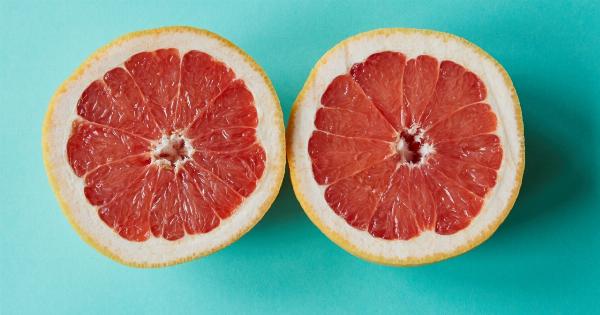Kidney stones, also known as renal calculi, are hard and solid deposits that form in the kidneys. They are made up of minerals and salts, and can vary in size from tiny grains to larger stones that can cause severe pain and discomfort.
Kidney stones can affect anyone, but certain factors increase the risk of developing them. It is essential to understand key facts about kidney stones to prevent and manage this condition effectively.
1. Prevalence of Kidney Stones
Kidney stones are a common urological problem worldwide. The prevalence of kidney stones has been increasing over the years, affecting approximately 1 in 10 people at least once in their lifetime.
Men are more likely to develop kidney stones than women, with the highest incidence occurring between the ages of 30 and 50.
2. Types of Kidney Stones
There are different types of kidney stones, each formed by different substances. The most common types include:.
a. Calcium stones: These are the most common type of kidney stones and are formed from calcium oxalate or calcium phosphate.
b. Uric acid stones: These stones form when the urine contains high levels of uric acid, often seen in individuals with gout or certain metabolic conditions.
c. Struvite stones: Struvite stones are largely composed of magnesium ammonium phosphate, and they commonly form as a result of urinary tract infections.
d. Cystine stones: Cystine stones are relatively rare and develop in individuals with a hereditary disorder that causes excess cystine in the urine.
3. Causes and Risk Factors
A variety of factors can contribute to the formation of kidney stones, including:.
a. Dehydration: Insufficient fluid intake can lead to concentrated urine, increasing the risk of stone formation.
b. Diet: A diet high in sodium, oxalate, or animal protein can increase the chance of developing kidney stones.
c. Obesity: Excess body weight can alter the urinary system, promoting stone formation.
d. Family history: If someone in your family has had kidney stones, you may be more likely to develop them as well.
e. Medical conditions: Certain medical conditions, such as urinary tract infections, kidney diseases, and metabolic disorders, can contribute to stone formation.
4. Symptoms of Kidney Stones
The symptoms of kidney stones can vary depending on the size and location of the stone. Some of the common symptoms include:.
a. Intense pain: Severe pain in the back or side, often radiating to the groin area, is one of the most noticeable symptoms.
b. Hematuria: The presence of blood in urine can occur due to kidney stones irritating the urinary tract.
c. Frequent urination: The need to urinate more frequently than usual or experiencing urgency can be a sign of kidney stones.
d. Cloudy or foul-smelling urine: Kidney stones can cause changes in urine color and odor.
e. Nausea and vomiting: Some individuals may experience nausea and vomiting due to the pain caused by kidney stones.
5. Diagnosis of Kidney Stones
If kidney stones are suspected, medical professionals may employ several diagnostic methods, including:.
a. Imaging tests: X-rays, CT scans, and ultrasounds can help visualize the size, location, and number of kidney stones.
b. Urine tests: Analyzing urine samples can provide valuable information about the composition of the stones and identify possible infections.
c. Blood tests: Blood tests can assess kidney function and identify any abnormalities that might contribute to stone formation.
6. Treatment Options
The treatment for kidney stones depends on their size, location, and symptoms. Common treatment options include:.
a. Drinking plenty of fluids: Increasing fluid intake can help flush out small stones and prevent new ones from forming.
b. Medications: Certain medications can help dissolve kidney stones or alleviate symptoms like pain and discomfort.
c. Extracorporeal shock wave lithotripsy (ESWL): This non-invasive procedure uses shock waves to break large stones into smaller fragments that can be eliminated through urine.
d. Ureteroscopy: In this procedure, a thin tube is inserted into the urethra and used to remove or break up stones in the ureter or kidney.
7. Prevention of Kidney Stones
Prevention plays a vital role in reducing the risk of kidney stone formation. Here are some preventive measures:.
a. Stay hydrated: Drink plenty of fluids, especially water, throughout the day to maintain adequate urine volume.
b. Dietary modifications: Limit consumption of high-oxalate foods (such as spinach, rhubarb, and chocolate) and reduce salt and animal protein intake.
c. Maintain a healthy weight: Combining regular exercise with a balanced diet can help prevent obesity-related stone formation.
d. Consider medication: If you have a history of recurrent kidney stones, your doctor may prescribe medications to prevent their formation.
8. Complications Associated with Kidney Stones
Kidney stones can lead to several complications if left untreated or unmanaged. Some of the possible complications include:.
a. Urinary tract infections (UTIs): Kidney stones can create ideal conditions for the development of UTIs due to blockage or irritation of the urinary tract.
b. Kidney damage: Large or untreated kidney stones can cause damage to the kidneys, leading to chronic kidney disease or kidney failure over time.
c. Recurrent kidney stones: Once someone has had kidney stones, they are more likely to experience recurrent episodes in the future.
9. When to Seek Medical Attention
It is important to seek medical attention if you experience symptoms suggestive of kidney stones. Additionally, immediate medical attention is required if:.
a. Severe pain: If you have intense pain that worsens or persists for more than a few hours.
b. Blood in urine: Visible blood in the urine should be evaluated by a healthcare professional.
c. Difficulty urinating: If you are unable to pass urine or experience significant discomfort while urinating.
d. Fever and chills: Symptoms indicative of an infection, such as fever and chills, require prompt medical attention.
10. The Future of Kidney Stone Management
Ongoing research is focused on developing new methods for better prevention, diagnosis, and treatment of kidney stones.
This includes the investigation of medications that can inhibit stone formation, advanced imaging techniques for accurate stone detection, and minimally invasive procedures with reduced side effects or complications.






























